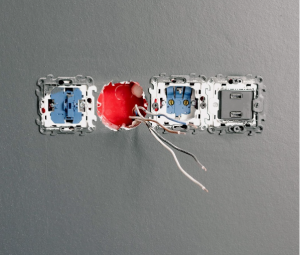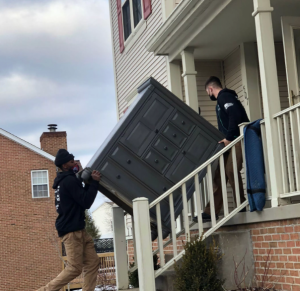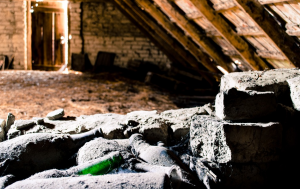
Pic Credit: Pexels
One of the downsides of being a homeowner is that you have to pay for any property repairs out of your own pocket. While some repairs are fairly cheap, others can be incredibly expensive. Below are 10 of the most expensive home repairs that you should try to avoid as a homeowner (as well as tips on how to prevent them/lower the cost).
Repairing your home’s foundations
Foundation repairs are typically very expensive. Minor cracks may only cost a few hundred dollars to repair. However, jobs like underpinning for more serious foundation damage can cost a lot more – on average between £7,500 and £9,500.
It’s best to get any foundation problems checked out early before settling and sinking occurs – signs like cracks and doors that don’t shut/open are telltale early signs. The longer you leave damaged foundations, the higher the repair costs (plus you could be putting your household in danger by increasing the risk of it collapsing). Always hire a qualified contractor that specialises in foundation repairs.
Foundation problems often occur as a result of bad soil conditions beneath the home – investing in good guttering or french drains can stop soil from getting waterlogged. You should also avoid planting trees too close to your home as roots can interfere with foundations. A home survey when buying a property is also very important as it could help you avoid taking on a property with poor foundations.
Rewiring electrics
If your home has old or botched wiring, you may need to pay to rewire your home. This job can vary in cost depending on the size of your home. A two bed house for example usually costs between £1500 and £3000 to rewire. Five bedroom houses can meanwhile cost between £7000 and £9000.
You should always hire a qualified electrician to rewire your home. The best way to save money is often to shop around for quotes. Adding in lots of new outlets will increase the cost.
There’s not much you can do to prevent a full home rewire other than not moving into a home with old electrics. A surveyor will be able to warn you if a property has poor electrics before buying an old house.
Installing new pipes
On top of needing new wiring, some homes need new pipes. The cost depends on the scale of the job. Replumbing a bathroom typically costs between £1000 and £2000. If you’re replumbing a whole home meanwhile, you could spend anywhere between £10,000 and £20,000 depending on the size of the home.
It’s safest to hire a professional plumber rather than trying to install new piping yourself if you have no plumbing experience. It is a very specialised and trained trade and the risk of it going wrong can be serious. That said, you may be able to save money by shopping for piping yourself – you can buy parts like 15mm copper tube online (just make sure you know exactly which parts you need). Always shop around for quotes before carrying out a big plumbing job.
You can reduce the need to replace pipes by getting any plumbing issues fixed early. Minor issues like blockages can be cleaned out while small leaks may be easily patched up without replacing the entire pipe. Low water pressure and odd smelling/oddly coloured water are early signs to look out for.
Replacing your roof
Small repairs like replacing a few tiles can often be quite cheap. However, a full roof replacement is almost always an expensive job. The overall cost depends very much on the size and style of your roof. For example, a new flat roof on a small garage may cost no more than £1000. However, a 2 valley hip roof on a detached home could cost anywhere between £6,750 and £7,250 to replace.
While you can attempt some roof repairs yourself, it’s best to hire roofing experts when carrying out a replacement. Always shop around for quotes and think carefully about the type of roofing material (asphalt shingle is a lot cheaper than a premium material like slate).
By looking after your roof, you can delay the need for a roof replacement. This could include getting your roof inspected and cleaned every few years. Check out this post for a few signs that your roof needs attention.
Repairing water damage/removing mold
Water damage restoration and mold remediation can be very costly too. In severe cases, where water has damaged multiple rooms or there is serious mold growth, it could cost as much as £10,000.
You should always shop around for quotes when repairing water damage or removing mold. When it comes to minor damage, it may be possible to carry out repairs yourself.
To avoid these repairs, it’s worth taking early action against rainwater or plumbing leaks. The longer a leak is allowed to occur, the more damage it will do. Expensive water damage restoration jobs are often the result of flooding – if you live in a high-risk flood zone, make sure that your home is suitably protected against floods.
Replacing your HVAC/boiler
Heating and cooling systems can be expensive to replace. Replacing an old boiler with a new good quality boiler typically costs £1000 or more, while biomass boiler replacements can cost over £7000. Replacing an HVAC system can meanwhile cost anywhere between £3000 and £11,000.
This is a job that should always be carried out by a professional. The cost can depend very much on the type of boiler or HVAC system that you choose as a replacement.
You can delay replacing your HVAC or boiler by regularly servicing it to extend its life. HVAC systems can last for many more years if kept clean – make sure you’re servicing them annually.
Replacing siding
If your home has siding that needs replacing, expect to pay a lot of money for new cladding. The average cost to reclad a home using upvc is about £1500 to £2100.
Some people attempt to reclad their home themselves, however you may prefer to hire a professional. You can save money by shopping around for prices and by carefully considering which cladding material you use. Don’t worry if DIY is not your thing you you can always call in a professional siding contractor here.
Avoid the need for cladding replacement by keeping your current cladding clean. If you have wooden cladding on your home, make sure that it is regularly resealed.
Replacing decking/patio
Thinking of replacing your old decking or patio? New decking could cost between £1000 and £2000, while a new patio could cost between £900 and £2500.
If you’re willing to put your DIY skills to the test, you could save money on hiring contractor by replacing decking and patio slabs yourself. You can also save money by shopping around for materials.
Decking and patio maintenance can extend the life of your patio or decking, preventing the need for a replacement. This includes annual cleaning and, in the case of decking, resealing.
Laying a new driveway
Once driveways become severely damaged, it’s often best to replace them entirely. This can cost anywhere between £2000 and £10,000 depending on the size and surface material of the driveway.
It’s possible to save money by laying a driveway yourself so long as you know what you’re doing. You should also consider the driveway surface material – gravel and tarmac are much cheaper than block paving and concrete.
Look after your driveway to reduce the need for a future replacement. This includes cleaning it and getting rid of weeds.
Repairing a septic tank
Septic tanks aren’t too common. However, if your home does have one of these, you should financially prepare yourself for any replacement – cost of septic tank installation can be anywhere between £2500 and £5000.
You should hire a professional to install a septic tanks. Save money by shopping around for quotes and by considering the septic tank model.
Septic tanks should be regulalry inspected. This can allow you to spot problems early and get repairs done, preventing the need for a full replacement.
Note: This is a collaborative post














